The Sunday Symposium is a weekly feature in which I'll be discussing various bookish topics and asking for your commentary, as well. This week, we're going to discuss common tropes, trends, and cliches we find all too often in YA.
This discussion post came about after Jen at YA Romantics published this post about YA trends she's ready to break up with. It got me to thinking about all the cliches we see too frequently in novels, and how even some of my favorite authors are guilty of using them in their stories. I'm not just talking about the dreaded love triangle, though that cliche is so played out, it might actually be coming back in style. Nope, never mind...it was never in style to begin with.
Before I started this post, I wanted to ensure that I was using the term "trope" appropriately. Merriam-Webster defines trope as:
a : a word or expression used in a figurative sense : figure of speechBut I like this explanation because it suits my purpose better: Above all, a trope is a convention. It can be a plot trick, a setup, a narrative structure, a character type, a linguistic idiom... you know it when you see it. Tropes are not inherently disruptive to a story; however, when the trope itself becomes intrusive, distracting the viewer rather than serving as shorthand, it has become a cliché. (from TV Tropes Wiki) Pretty much, the situations I'm about to describe -- in my opinion, of course -- have morphed from a harmless trope into an annoying cliche because of their prevalence in YA literature.
b : a common or overused theme or device : cliché
1. The really old paranormal guy trapped in the body of a teenage boy -- Does no one else think this is kind of oogie...and illegal? I mean, if these girls' parents knew that their daughters were dating ancient vampires and angels and monsters decades older than them...well, it probably wouldn't make a difference, right? Because these girls are stupid enough to get involved with immortals in the first place, meaning they aren't thinking straight and would probably run away with the guy if their parents put the kibosh on the relationship.

2. The guy leaves/pushes the girl away to "protect" her from hidden/unseen dangers, dangers that have not yet presented themselves, or from himself -- Ugh, maybe if this scenario didn't always end the same - with the guy coming back because he has to rescue the girl - I wouldn't find this cliche so offensive. But, geez, why do guys in YA always seem to treat the girls like damsels in distress? Sure, some girls are like that, but some of us know how to manage on our own. Gimme more guys who realize and appreciate the fact that a girl can change her own oil or shoot a gun and that we don't all need protecting.
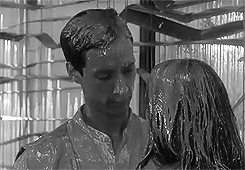
3. Absentee parents -- Jen remarked upon this in her post, but I felt the need to touch on it, as well, because it bothers me to no end. Time and time again in my reviews, I've pointed out that young people can still get up to their usual shenanigans with parents in the picture. They don't need to be dead, missing, on an extended business trip, or otherwise absent for kids to get themselves into trouble. Sometimes those same kids need a good parental figure to turn to when the proverbial stink has hit the fan.
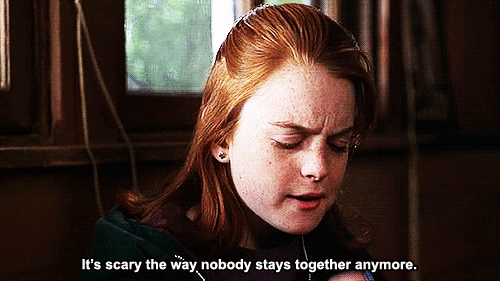
4. Boarding school -- This one kind of goes along with #3 in that hijinks tend to ensue when kids are shipped off for an education without parental supervision. Granted, there are usually some figureheads around to keep the peace, but there are ways to circumvent them. And don't get me wrong, there are some really awesome novels set at boarding schools (see gif below), but in general, they're overused as a plot device.
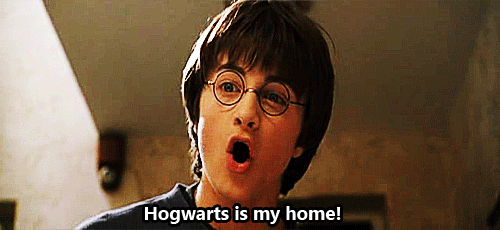
5. The plain Jane that all the guys fawn over -- Kind of a tangent off of the love triangle because that's usually how this situation plays out, but it doesn't make it any less obnoxious. Maybe, if these plain Janes had spectacular personalities or were just really, really nice, I could see this as realistic. More often than not, the girl is usually pursued because she is, in fact, not a plain Jane and instead suffers from Ugly Duckling Syndrome and low self-esteem.
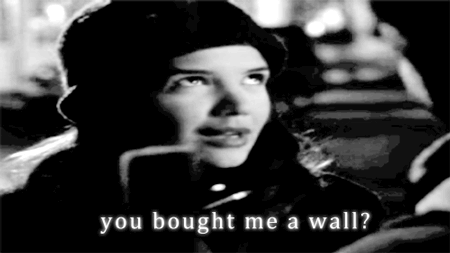












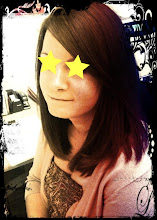

Well, I was going to comment agreeing with the first point, but then I read the second, and agreed with that, and then the third...
ReplyDeleteSo: YES. ALL THIS. STOP IT
Which is kind of sad, actually, because I kind of really like tropes. Just, not these ones.
~ Lindie
Yeah, there are definitely some that bother me more than others, that's for sure. I'm curious...which ones do you actually like, though?
DeleteHa ha ha -- that TV Tropes site is one of my favorites. If we had time, we should totally do one for YA. So. Many. Possibilities.
ReplyDeleteLoved your list. Thanks for the shout-out.
Extra! Extra! My Weekly Recap
Ugh, I know. YA is just full of 'em. You and I barely touched on them. :P
DeleteI am so sick of absentee parents. :( I get that they don't want parents to be in the way of the story, but there are ways around it or ways to include them minimally. And of yes, the plain Jane that seems to attract every male within a 50 mile radius. *sigh*
ReplyDeleteI'm really glad I'm not in the minority on the absentee parents thing. Why is it so rampant in YA when there are so many other ways to further the storyline?
DeleteI'm not a fan of some of those you mentioned, but insta-love or falling in love based on the flimsiest reasons is another one for me (adult novels do this too I know).
ReplyDeleteNice discussion.
Yeah, insta-love and love triangles are probably the most common. And I don't honestly mind them if they're really well done, but more often than not, they aren't. :(
DeleteAwesome post! I completely agree.
ReplyDeleteHonestly, my biggest pet peeve isn't necessarily ideas that are the same, but phrases and word choice. I particularly see this in contemporary romances. I can always think of LOADS while I'm reading, but right now I can only think of one example... How whenever the girl and the love interest touch for the first time, they feel a "zap" or a "current".
When I see little things like that pop up again and again, it makes me mad. Big ideas repeating all the time make me mad too, but I think it's amazing how so many minor details and phrases can jump from book to book.
YES! That freaking current of electricity that passes when they touch! What is with that? Or, more to the point, why is it described like that? I understand feeling a pull toward someone, but an electrical shock?
DeleteYou're right...I see a lot of the same common ideas, but I can't think of a specific instance at the moment. I'm going to start cataloging those, too.
If I could hug you right now, I would. I love every one of these! But above all is the love triangle. I HATE the love triangle. I have talked about this over and over and over. Seriously, if people think we need to put love and shapes together, make it interesting. Give us a love square for once!
ReplyDeleteOkay, I am done ranting. :D